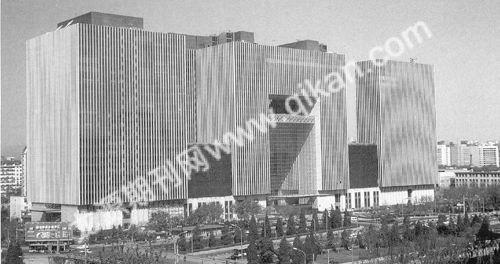Beating the aBribe Tribe
2009-10-12
The involvement of the Chinese state-owned enterprises (SOEs) into the briberies brought an alarm for this country. The Central Discipline Inspection Commission (CDIC), which is directly responsible for dealing with the corruption cases of Chinese government officials, will be engaged in the investigation.

The bribery cases involving the US-based Control Components Inc (CCI) and several SOEs in China shocked the whole country. The State-owned Assets Supervision and Administration Commission of the State Council (SASAC), which directly exerts management and supervision over those SOEs, started the investigation into the bribery cases. Its first target was the leading energy enterprise in China – China National Petroleum Corporation (CNPC).
On August 21, the SASAC formed a special team to conduct the investigation into CNPC. The result showed that CNPC really accepted the bribes from the US company. However, the amount is less than 10 thousand yuan (USD 1,464.2), much smaller than the millions of yuan mentioned by the US company. In addition, the bribes were given to some of its affiliated companies, not CNPC itself.
But the investigation was not over. Actually, CNPC was only one of the SOEs involved in the bribery scandal. As the core anti-corruption department, the CIDC attached great importance to this matter. It will send a special team to make investigations into the international bribery cases of CCI.
Huge Change in Amount
As mentioned above, CNPC was the first SOE under investigation. As the No.9 in the Top 500 Global Corporations 2009, CNPCs involvement into the bribery scandal received a lot of attention.
“Now it has been confirmed that some tertiary affiliated companies of CNPC accepted the briberies, the largest amount of which was seven or eight thousand yuan (USD 1,025 or 1,171),” said a source from the SASAC.
Previously, the US Department of Justice published the data based on their investigation, saying that the employees of CNPC received the bribes from CCI twice, with the total amount of 1.66 million yuan (USD 243.06 thousand). It was also said that the main criminals of the bribery cases were an executive in CNPC and R. Carson, a CCI senior executive in charge of the businesses in Mainland China and Taiwan.
“The investigation is hard to be conducted if the information from the USA is true. The executive mentioned by the US Department of Justice belonged to a CNPCs secondary affiliated enterprise, which has been gone,” said a source from CNPC.
In addition, it was proved that the CNPCs affiliated companies in suspect of taking briberies had already started inside investigations. The journalist tried in vain to contact with the news office of CNPC to ask for the results of the inside investigations. The SASAC was not willing to give any further information either.
Compared with another two SOEs suspected of taking briberies from CCI – China National Offshore Oil Corporation (CNOOC) and Datang International Power Generation Co., Ltd. (Datang Power), CNPC seemed to be more silent over the case. It never openly spoke about its relations with CCI and the bribery cases. What was more confusing was that some of CNPC employees have never heard that their company was involved into the CCI bribery cases.
Involvement of CDIC
SASAC was not the only government department paying attention to the CCI international bribery cases. “The CDIC also planned to take part in the investigation,” said a source from CNPC.
Senior lawyer Ma Guangyuan thought that the Chinese judiciary department should take part in the investigation as early as possible. Actually, many people had doubt in the huge disparity in the amounts of briberies from the US Department of Justice and the SASAC. Since the SASAC is the direct supervision department of CNPC, maybe some truths were hidden.
According to the information from the US Department of Justice, 9 Chinese SOEs were involved in the CCI international bribery cases, including Datang Power, CNPC, CNOOC, China Resources Power Holdings Co., Ltd., Dingzhou Power, Dongfang Electric Corporation, China Petroleum Materials & Equipments Corporation, Jiangsu Nuclear Power Co., Ltd. and Guohua Electric Power. Datang Power, CNPC and Dongfang Electric Power are the enterprises directly owned by the central government.
According to the laws and regulations, the appointments of executives of the large SOEs are determined by the Organization Department of the CPC Central Committee and the SASAC. If the executives have corruption problems, the CDIC also has the right to put them under investigation.
Not the First Time
Actually, CCI was not the first foreign company that offered bribes in China.
In August, pressure-sensitive adhesive giant Avery Dennison said that the retro-reflective department of its branch company in China offered bribes of 30 thousand US dollars to some Chinese local government officials from 2002 to 2005, aiming at getting the orders from a state-owned enterprise. Previously, Siemens, DPC and Lucent were exposed to commit briberies in China.
Various methods were adopted by these companies in offering bribes. According to the information from the USA, CCI offered the bribes to the bribe receivers in cash, bank transfer, brokerage, education fees and travel opportunities.
The inside email of CCI said: “Our price is 185 thousand US dollars, including the 2% brokerage. The customers increase the price to 250 thousand US dollars, asking for the brokerage and the price difference.” This is the most common bribery. CCI also paid the education fees for the customers children who are studying overseas or invited the customers to enjoy overseas luxury travel.
These measures are quite effective not only for the Chinese enterprises, but also for the SOEs in the other countries.
According to the confession letter of a CCI senior executive offered by the US Department of Justice, from March 2003 to August 2007, this executive and his underlings paid 1 million US dollars to the SOEs executives in different countries to get more orders for the company. From those orders the company earned profits of 5 million US dollars The SOEs taking bribes were distributed in China, India, Brazil, Korea, Malaysia and United Arab Emirates.
